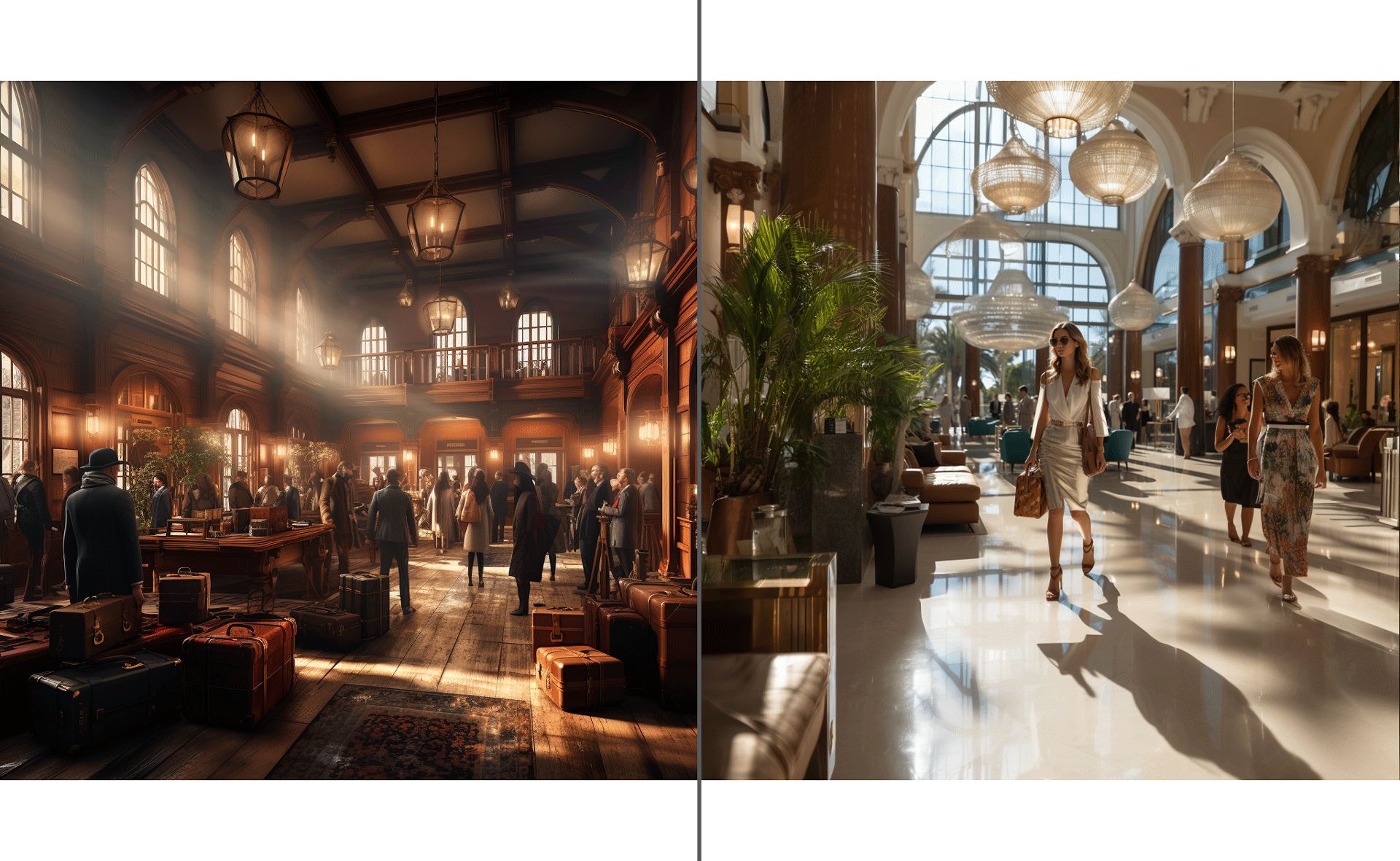Branding in the Hotel Industry (Part 1)
Intro:
Do you ever wonder what makes Ibis Hotel and Continental Hotel different? How come Burj Al-Arab comes to mind whenever the subject of luxury hotels is discussed? Does spending more money make a hotelier more famous? Does the success and failure of hotels depend on other factors?
In previous posts of Shahrtash Studio, we explained what branding is, what it involves, and how it impacts business activities and success or failure. In this blog post, we will discuss in more detail the role and importance of branding in hotels.

Brand Audit:
Initially, a brand audit is conducted, which employs a variety of tools and techniques, including SWOT analysis, competitor analysis, current brand assets, infrastructure, etc., to summarize what the business currently has at the time of starting the process. We can use this audit to understand what needs to be changed and what needs to be done in the branding process.
Our process will be applied to your brand if you had a brand before we started working with you, and we recognize that a brand study is necessary before proceeding with anything. Our brand audits in the hotel industry begin with a review of your hotel’s intellectual assets. By holding briefing sessions and conducting interviews with stakeholders of your brand, we will determine what you consider to be the image that your brand conveys to the public. What are the perceptions of your guests on your ability to provide comfort or luxury during their travels? What does your guest experience look like to you? Do they see themselves as customers or as guests? As part of this process, these items are also verified with people outside the organization so that you can get the right picture of your current brand.
By using tools such as SWOT analysis, competitor benchmarks, and so on, we determine your position in this industry and what opportunities and threats await you. A hotel in an expensive neighborhood of a large, densely populated, and touristic city has different characteristics from a hotel in a sparsely populated village. A lot of factors need to be considered at this stage, including the demographics of your customers, the characteristics of your regional setting, your guests’ tastes, etc.

The world’s best chefs, for instance, may be hired by you. Let’s say Gordon Ramsay is working as a chef in your hotel’s kitchen. If a traveler came to your hotel to sample local food, wouldn’t it be better if its food was prepared by a local chef?
Consider another example: Suppose you have determined that the tone of the content and the type of communication with your customers is friendly and conversational based on your vocal identity. How would guests react if you were operating a hotel in an expensive district in New York? Would they accept such a method of communication or would they take it as an insult?
The purpose of a brand audit is to answer these questions. After gathering various qualitative and quantitative data, it’s time to review the current brand strategy and see how much it needs to change. At this stage, one of the most important questions is whether or not your company needs to rebrand.
Your brand strategy may be written in great detail and address all of your business’ questions and challenges; however, it may not apply to what you do. Unfortunately, premade templates are sometimes used, and in these templates, there is no difference between a hotel in the center of Isfahan and one on Hawaii Island. Because of this, we say everyone who claims to do branding can’t deliver something as magical as ours; branding doesn’t happen overnight.
Brand strategy in the hotel:
In the second step of our work, we prepare your brand strategy. Based on the findings of the previous stage, we reach the intellectual core that will guide your company’s future activities. As this strategy affects every aspect of your brand, the strategy should explain your brand’s direction fully and comprehensively.
There are many players in the hotel industry around the world. Previously, we explained that entering an industry is like entering a battlefield, and businesses without a strategy are likely to fail. At this stage, considering the guests we have planned for your hotel and the dos and don’ts that arise from your business, we arrive at an integrated strategy that specifies which activities you, as a hotel owner, are permitted to engage in.
For brand strategy, we used the term intellectual core. What is this intellectual core and how can it help you become a successful hotelier?
Your business is treated as a living entity when it comes to brand strategy. It has its name and characteristics; It holds a specific position; It exhibits certain behaviors; It communicates with a particular group of people; It has a vision and a mission for itself, and perhaps most interestingly, it has its archetype.
What promises does your hotel make to its guests? Peace and simplicity or luxury and splendor? If you don’t know in advance what you promise to your customers, they may expect from you that you will not fulfill, causing them disappointment. You can reference the brand promise in the brand strategy to find out what your responsibilities are with the customer.

When your guests arrive at your hotel, they need to know what to expect. This is what the archetype of the brand defines. We identify archetypes that fit your brand and your audience based on the data we collected and analyzed from your business and your ideal customers. The CareGiver archetype may have been chosen if we concluded that your main guests are elderly people traveling for medical care. Customer/guest confidence is obtained more readily through this archetype if you follow its behavioral dos and don’ts.
A brand strategy goes beyond external communications and defines your brand’s future. Your brand’s vision and mission will help you make fewer mistakes and reach your goals more easily. Your hotel may have a vision of becoming an international hotel and operating on all continents, or you may only have a branch in one city. These two perspectives differ and without a clear understanding of what you want in advance, high costs and irreparable mistakes are more likely.
End of the first part
In this post, we discussed the role brand audit and brand strategy play in your hotel’s success. Our next post will discuss other aspects of branding, and our final post will discuss the steps of launching and checking the brand.
To learn more about Shahrtash Studio and how our studio does things, we suggest you read Our Magic.


